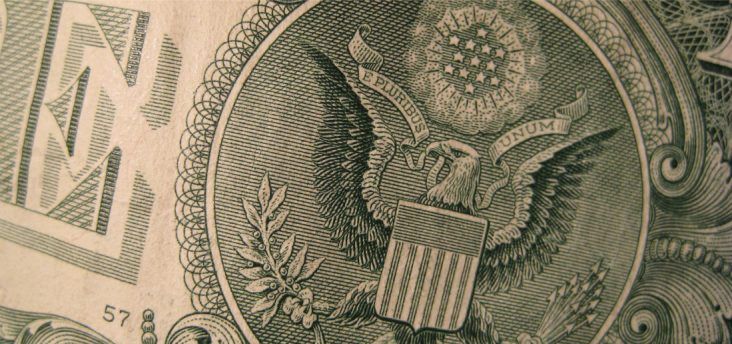Conference Board Survey: CEOs see growth challenges and a tepid 2023
by January 17, 2023 6:41 pm 534 views

CEOs surveyed recently by The Conference Board expect a tepid business climate with slower growth for most of the year. The survey also found that 51% of CEOs worldwide and 60% of U.S. CEOs expect economies to pick back up by late 2023 or mid-2024.
The survey released Jan. 12 included responses from 700 CEOs and 400 other top executives across a wide range of sectors. The survey report also notes that while CEOs are bracing for economic downturn and possible recession, it’s the labor shortages and talent retention challenges that rank among their biggest immediate concerns. Other concerns raised by the survey participants include the external threat of more cyberattacks, economic sanction, further food and energy constraints brought on by the war in Ukraine.
Recession was the top external concern in 2023 among U.S. CEOs and abroad. Worry has escalated from a year ago according to The Conference Board who said recession fears ranked 6th on the list of concerns last year. Inflation amid rising interest rates and continued high prices for goods and services ranked as the No. 2 concern among the CEOs around the world, the survey noted.
Chinese CEOs were less concerned about inflation ranking it 7th in their list of concerns. China’s growth slowed to 3% last year, the slowest rate in more than 15 years brought on by its COVID-19 policies and industrial and trade shutdowns off and on over the past three years. The country of a billion-plus also showed population growth declined for the first time since the 1960s.
With rising interest rates, the cost of borrowing has escalated in the past year causing more U.S. CEOs worry. Higher interest rates ranked the fourth biggest worry for U.S. executives this year. The survey report said that has escalated from a ranking of 25 last year. Across the globe, CEOs ranked interest rate hikes the 10th biggest concern, up from 22nd a year ago.
While U.S. CEOs expect the economic slowing to turn by late 2023 or early 2023, executives in Japan and China are more pessimistic with growth expected to return later in 2024 or beyond.
While COVID-19 is in the rearview mirror for much of the world, CEOs in China continue to rank the virus as its No. 1 external challenge for this year. CEOs in Japan also still worry about the ongoing COVID virus, ranking it as their 3rd biggest worry this year, down from No. 1 last year. The report said U.S. executives ranked COVID threats lower this year at 18th on their list, falling from No. 4 last year.
“While CEOs globally are looking to contain costs and reduce discretionary spending – actions typically taken during a slowdown – employees may be able to breathe a sigh of relief, as few executives are turning to layoffs. Instead, they plan to mitigate risk by accelerating innovation and digital transformation, pursuing new opportunities in higher-growth markets, and revising business models – the three most-cited actions,” said Dana Peterson, chief economist at The Conference Board.
Looking at geopolitical disruptions, the war in Ukraine and its ongoing impact on business is pretty low among CEO executives, but understandably, CEOs in Europe and Asia remain highly concerned. European executives rank it 4th on their list of concerns, and 8th among Chinese business executives. Globally it’s viewed as the 15th biggest worry and the concern fell to 22 on the U.S. execs’ 2023 worry list.
“The risk of an intensifying war in Ukraine disrupting both the global economy and the world order may be much higher than many CEOs are anticipating. With only 17% of CEOs globally saying their organizations are either well prepared or very well prepared to deal with a crisis involving an expansion of the war in Ukraine, firms need to prepare for the potential ramifications of conflict escalation — even if such events seem unlikely,” said Dr. Lori Esposito Murray of The Conference Board.
Also, 68% of CEOs in the survey expect worsening energy crises and 65% predict continued higher food costs related to ongoing grain shortfalls out of the Ukraine as well as supply chain backlogs. The survey found two-thirds of respondents said they expected to alter supply chains within five years, moving to more localized sourcing and increasing use of artificial intelligence to make supply chains more resilient and less prone to disruption.
A majority of 67% of CEOs in the U.S. said they will invest in customer experience technology and personnel. Also, 55% of U.S. executives said they plan to invest in new customer acquisition and 51% will spend more on product development, despite company profits remaining under pressure. Corporate execs also said they will plan to invest in talent retention and attraction this year. Among CEOs globally, Talent ranks the top worry or CEOs worldwide. Among U.S. executives in the survey the talent worry ranked second behind recession.
“To attract and retain talent — the biggest internal worry of CEOs worldwide — leaders are focused on building stronger cultures. But some of the key factors that contribute to such an environment—including addressing pay inequality, development opportunities, and a psychologically safe workplace — are relatively low on their list of priorities. This presents an opportunity for C-suites to revisit their companies’ goals for strengthening organizational culture and the specific actions required to do so,” said Rebecca Ray of The Conference Board.
